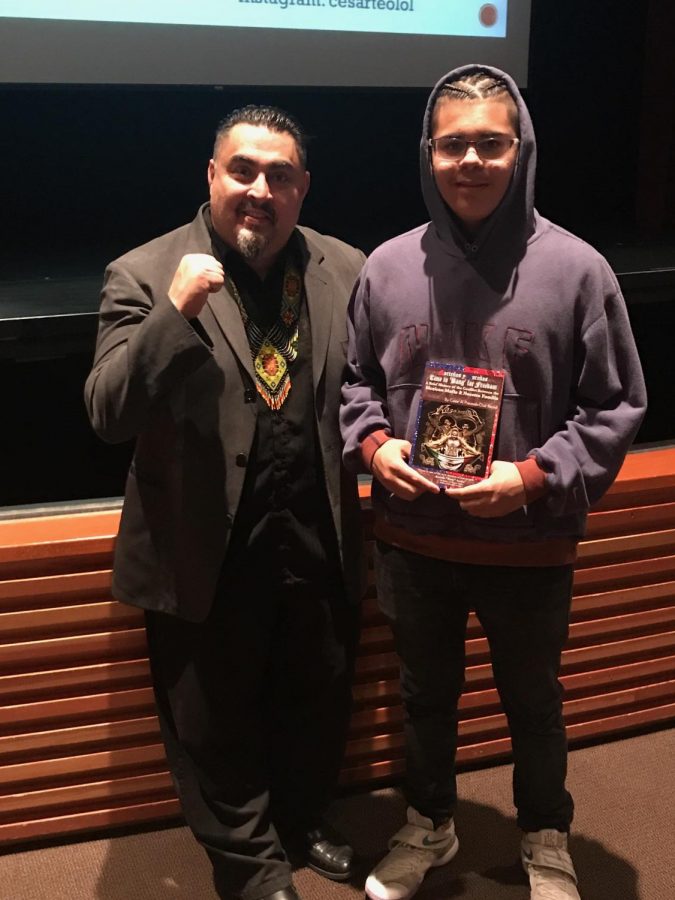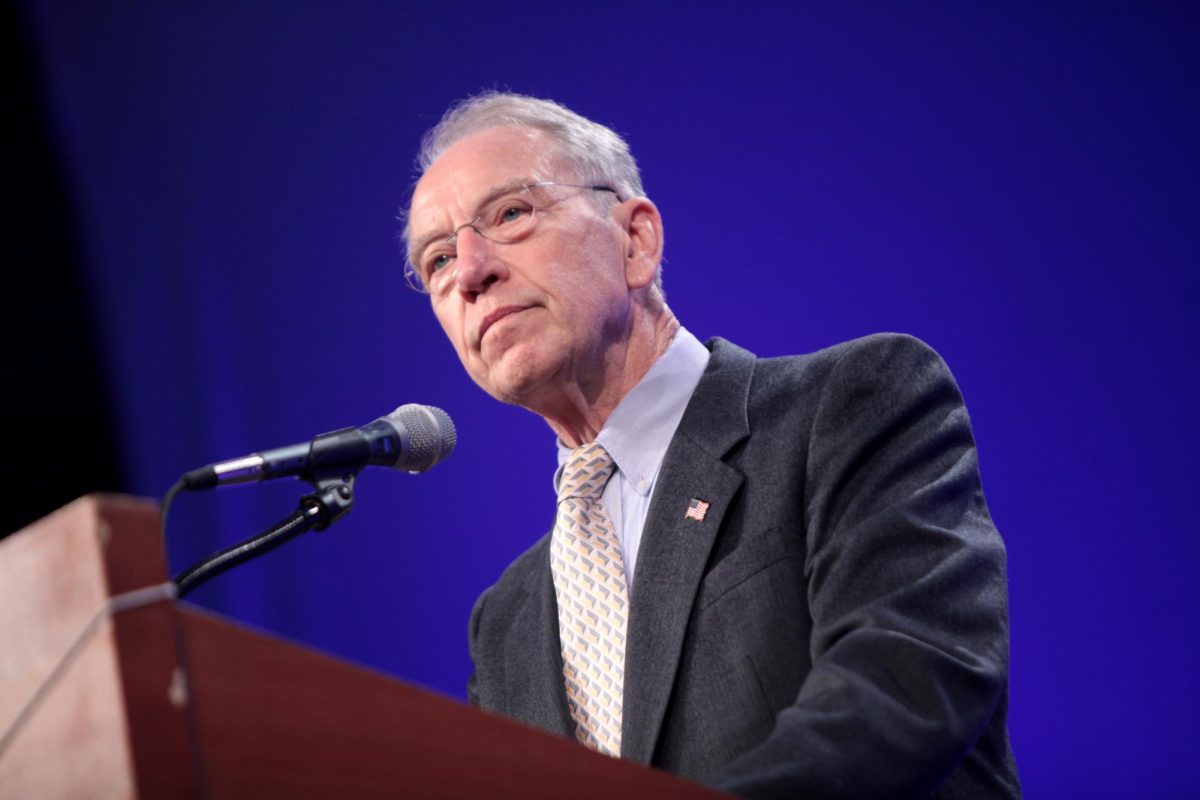Harvard graduate, Cesar Cruz, delivered an ardent presentation to Woodside High School students on Monday about his life struggles and successes, sending a powerful message to the audience.
It is rare to meet a Harvard Ph.D. grad, especially one that is a Mexican immigrant. But that’s exactly who WHS students got to meet. Cesar Cruz, founder of the Homies Empowerment Movement, recipient of the Jefferson Award for Public Services, and first Mexican male to ever receive a Doctorate in Educational Leadership at the Harvard Graduate School of Education, is much more than just a Harvard graduate.
“It’s about figuring out how do I see the other things about me and not just my imperfection,” Cruz said in the beginning of his presentation. “So what I would like young people is to take inventory of all the things that are amazing about them. And maybe they don’t know what it is, but they’re still alive.”
https://www.youtube.com/watch?v=0wJ8y1TbQD0
Cruz captivated his audience with interactive conversations, allowing students to discuss topics with one another and giving opportunities to the students to stand and share their thoughts with the rest of the audience on themes, like immigration, stereotyping, and racism specifically towards Hispanic and Latinx youth. Throughout the entire presentation, Cruz addressed the audience asking for permission to continue speaking about a topic, making sure everyone was comfortable.
Marco Mirandera, a freshman at the presentation felt that he was “very comfortable during the presentation. I really connected with Cesar because I too have gone through the same problems as him such as constantly being scared that my parents could suddenly be deported.”
Through his early life, Cruz had to endure many hardships. When he was just a child, his mother abandoned him to seek a better life in America. Being from Jalisco, Mexico, Cruz experienced a lot of things very few children in the U.S. experience, like poverty, starvation, and abuse. When he was only ten years old, his mother was deported for the first time.
“I learned how to dodge real bullets but I didn’t know how to dodge emotional bullets,” Cruz said. “When you’re really depressed and feel like it’s over, I would love young people to find all of the amazing things they can find for the emotional flu.’’
As a teenager, Cruz had a lot of trouble caring about school. He didn’t understand why he should care about school or what why it was actually important. This is something many WHS students can relate to regardless of age or ethnicity. He, like other suffering teens, fell into the nefarious spiral of drugs and alcohol to escape his problems. However, he found strength and inspiration in his grandmother.
“I think it’s my grandmother’s hope. I was so depressed I was doing drugs and she still embraced me,” Cruz explained. “I think I wanted to do that in education.”
Along with drugs and an educational identity crisis, Cruz was also a teen-parent and lost his son. All while coping with his loss, Cruz went on a hunger strike because the California Governor refused to speak with the teachers and students regarding the impoverished Richmond schools.
His students and other teachers joined in on the march because they were “losing everything amazing about school,” Cruz mentioned. “We lost sports, music, arts, counselors, librarians. I felt I needed to stand up and the students felt like they needed to stand up so we marched 70 miles to the governor’s office, and when we got there he refused to see us.”
The peaceful hunger strike protest lasted 26 days, and Cruz found strength within himself in order to continue the strike.
“I think it was my faith that a new world is possible,” Cruz commented. “I do believe a new world is possible to try and create change.”
After graduating from UC Berkeley with a Bachelor of History, he was an educator for 27 years. After that, he has spent the last 17 years in positions of leadership, most remarkably as the Dean of Secondary Schools Program at Harvard University.
“I didn’t see too many people that look like me,” Cruz shared about his experience at Harvard. “Any school you go to is not rocket science. If you learn to think for yourself, doing the reading, and writing… you can ace homework. They make them out to be the hardest places but they’re not. They want people that are critical thinkers. And so can the whole student body at Woodside. But, people who look like me don’t get shown as a Harvard graduate, but I am.”
In the end, Cruz didn’t want kids to learn about his life but rather his philosophy. Using his life experiences, Cruz truly connected with the students, providing a safe environment to provide their thoughts and ideas, helping them find their 21-foot ladders.
“My mom has this story about 20-foot borders and this is an obstacle in your life that’s really big,” Cruz said. “But what if you had a 21-foot ladder that was even bigger than the obstacle? That’s my mom’s faith, hope, and love, and that’s what we do every day.”






